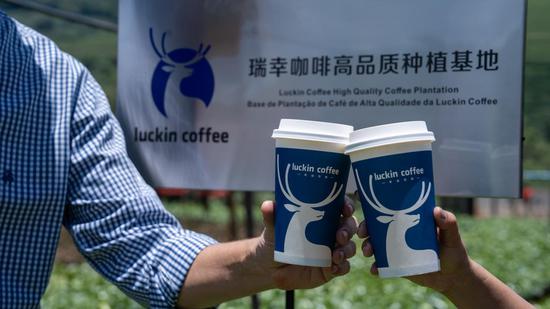Luckin Coffee boosts economic and cultural exchange between China and Latin America
(ECNS) -- The year 2025 marks the 10th anniversary of the China–CELAC Forum, an increasingly influential platform that has, over the past decade, deepened political trust, aligned development strategies, and fostered cultural connections between China and Latin America.
Over the years, Latin American agricultural products such as coffee, blueberries, and cherries have made their way into Chinese restaurants, supermarkets, and coffee shops.
As a coffee chain with over 20,000 stores across China, Luckin Coffee has harnessed the power of “coffee as a catalyst” to advance China–Brazil cooperation in the coffee industry. The company plays a pivotal role in promoting bilateral trade and cultural exchange, actively contributing to the formation of what is now widely regarded as a “golden partnership” between the two nations.
A 10-billion-yuan coffee bean purchase MOU elevates China–Brazil trade relations
China and Brazil have long drawn international attention for their dynamic bilateral trade. From the Eastern Hemisphere to the Western Hemisphere, coffee beans travel more than 16,000 kilometers, undergoing a transformation from green beans to brewed beverages served at over 20,000 Luckin Coffee stores across China. This cross-continental coffee supply chain has emerged as a powerful driver of economic cooperation between the two nations.
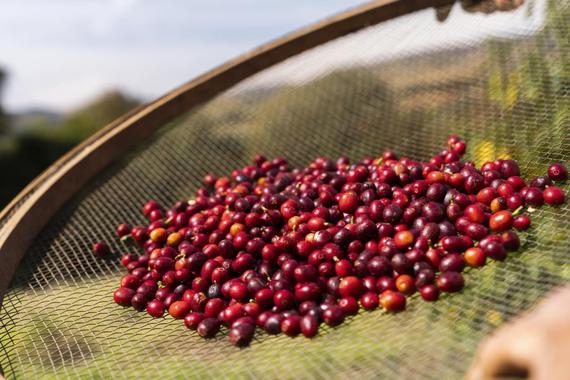
In a moment of historical symmetry, on August 15, 1974, Chinese and Brazilian representatives celebrated the establishment of diplomatic ties by raising Brazilian coffee instead of wine. Over 50 years later, coffee once again stands as a symbol of the growing strength of China-Brazil trade.
Luckin’s coffee bean procurement partnership with Brazil has brought bilateral trade between the two nations to new heights. In November 2024, under the witness of Geraldo Alckmin, Vice-President & Minister of Development, Industry, Trade and Services of Brazil, Luckin Coffee signed a Memorandum of Understanding (MOU) with the Brazilian Trade and Investment Promotion Agency (Apex-Brasil) in Brasilia, the capital of Brazil. Under the agreement, Luckin Coffee will purchase 240,000 metric tons of coffee beans from Brazil between 2025 and 2029, valued at 10 billion yuan (about $1.38 billion).
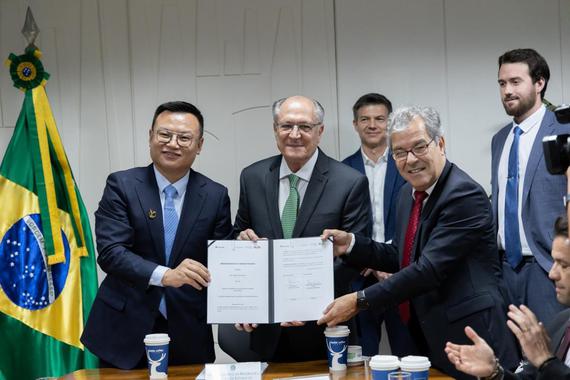
Jorge Viana, President of Apex-Brasil, praised Luckin Coffee as a “key bridge for China–Brazil cooperation in the coffee trade.” He emphasized that this is not only Luckin Coffee’s largest coffee bean procurement agreement to date, but also the largest coffee purchase agreement ever signed between a Brazilian and a Chinese enterprise.
According to the “2024 China Coffee Import Report”, in 2023, China’s coffee imports from Brazil reached $220 million, a year-on-year increase of 158.4%, with import volume rising to 60,000 tons, up 192.2% compared to the previous year. These figures are expected to continue growing as Luckin Coffee’s 10-billion-yuan procurement agreement is implemented.
In 2024 alone, Luckin Coffee’s procurement accounted for 60% of Brazil’s total coffee bean exports to China. As Luckin Coffee expands, Brazilian coffee is gaining broader access to China’s high-potential coffee beverage market.
According to Luckin Coffee’s 2025 Q1 financial results, the company now operates 24,097 stores globally, with about 355 million cumulative transacting customers. Jinyi Guo, Co-Founder and Chief Executive Officer of Luckin Coffee, stated: “We are off to a strong start in 2025. Capitalizing on China’s booming coffee market, we will strategically focus on gaining market share by continuing to offer high-quality products at competitive prices.”
Luckin Coffee: An “envoy” in China–Brazil cultural exchange
The cultural imprint of coffee in Brazil is now deeply woven into every stage of Luckin Coffee’s supply chain, reflecting the growing depth of cultural exchange between the two nations. In November 2024, the Luckin Brazil Coffee Museum was officially inaugurated, symbolizing the deep integration between Luckin Coffee and the Brazilian coffee industry. The museum offers an immersive narrative of the journey of a premium green coffee bean, carefully selected from Brazil’s coffee-growing regions, transported through Luckin’s vertically integrated, efficient supply chain, and ultimately brewed into high-quality coffee beverages for consumers.
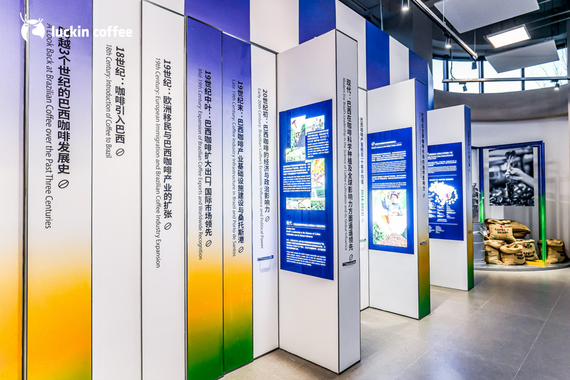
The establishment of the Luckin Brazil Coffee Museum builds on the cultural exchange initiated in August 2024, when Luckin Coffee, in collaboration with the Embassy of Brazil, launched the Luckin Coffee Brazil Coffee Culture Festival. These efforts further expand the scope for bilateral cooperation in the coffee industry, promote the sustainable development of the China–Brazil coffee industry, and foster greater awareness and appreciation of high-quality Brazilian coffee and its rich cultural heritage among Chinese consumers.
On the ground in Brazil, Luckin Coffee has also demonstrated its long-term commitment to upstream coffee sourcing. In 2024, the company established its Brazil Office and the Luckin Coffee High Quality Coffee Plantation, enabling deeper engagement in daily agricultural operations and further enhancing quality control capabilities. Luckin Coffee also founded the Luckin Coffee Brazil Farmer Support Center, aimed at providing professional training to local farmers and promoting the standardization and normalization of coffee farming practices in origin regions.
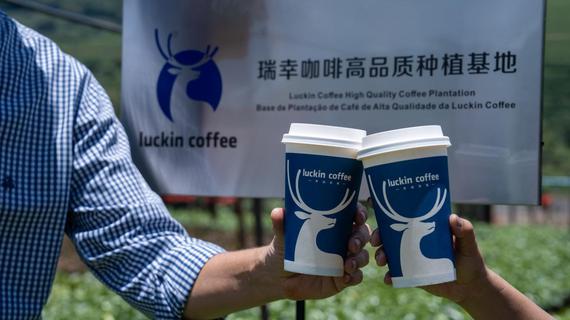
The partnership between Luckin Coffee and Brazil is regarded as a model of cooperation among Global South countries. This collaborative approach has not only contributed to the economic development of both China and Brazil, but also offers a valuable reference for advancing trade cooperation among other developing nations. Luckin Coffee remains committed to implementing the strategic guidance of China’s top leadership — "to better synergize the Belt and Road Initiative with the development strengths and needs of the LAC region."
Luckin Coffee serves as a "micro-level anchor" within the broader narrative of China–Latin America relations, embodying the dynamism of a Chinese coffee brand that is helping to energize the global coffee economy. From a broader perspective, Luckin Coffee’s coffee trade partnership with Brazil illustrates the active role Chinese enterprises are playing in advancing cooperation among Global South countries, and contributes to strengthening economic collaboration and development across emerging markets.

